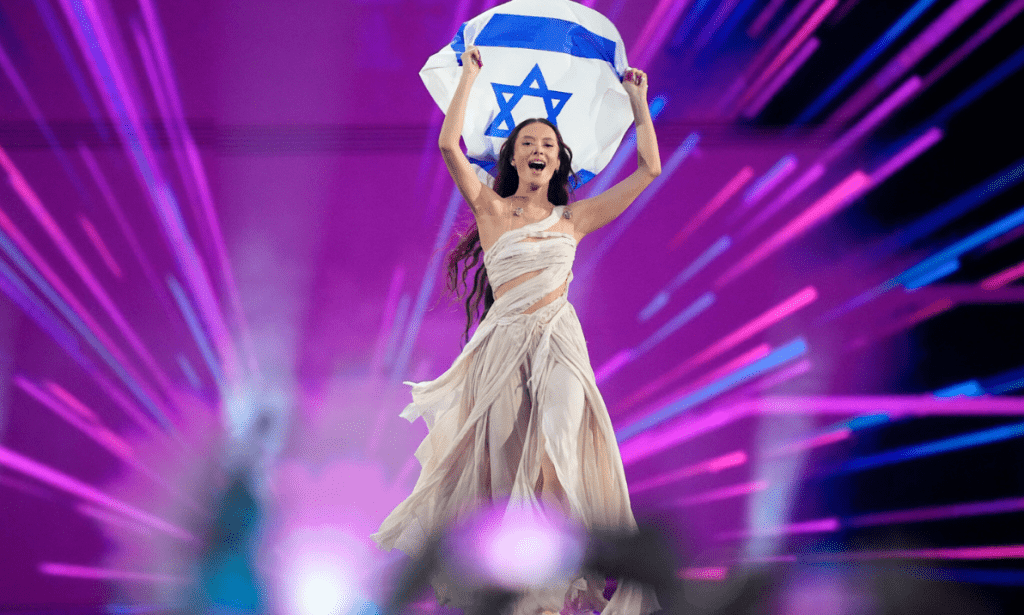This year, on one stage, performers from 37 European countries competed, and after 2 semi-finals, the number went down to 25 and finally to one winner, Switzerland’s Nemo. The question is, how does Israel and Palestine link to this music competition?
Let’s Start With Eurovision Itself, What Is It?
To keep it simple, performers from across Europe compete in a music competition called Eurovision, where the final winner ends up crowned as the continental champion. Each performer either competes as a solo act or among a band.
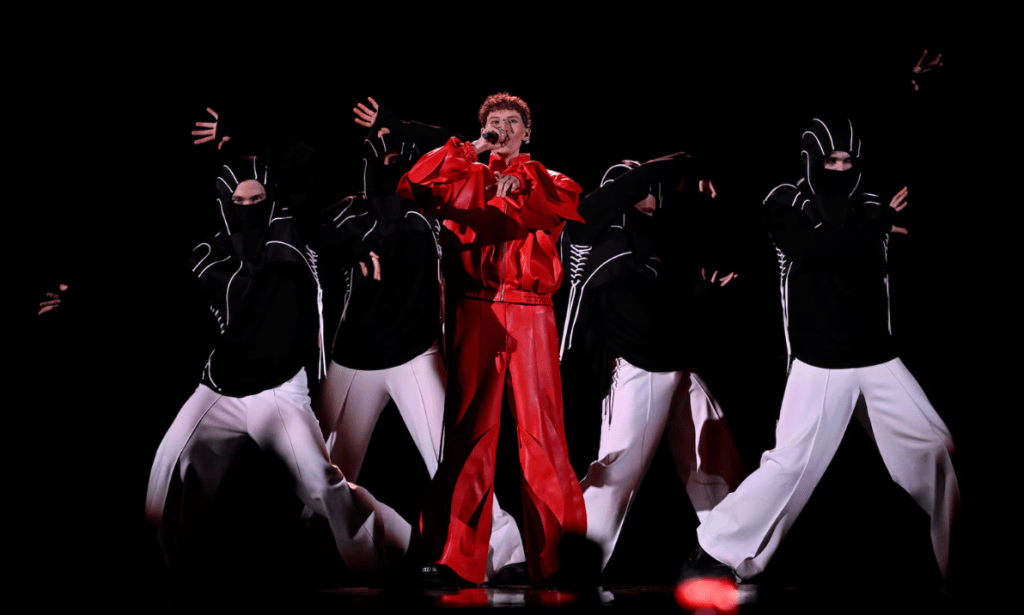

Performers get to sing songs of any language or genre live in front of an audience. Recently, the performances took on extra theatrics, including pyrotechnics.
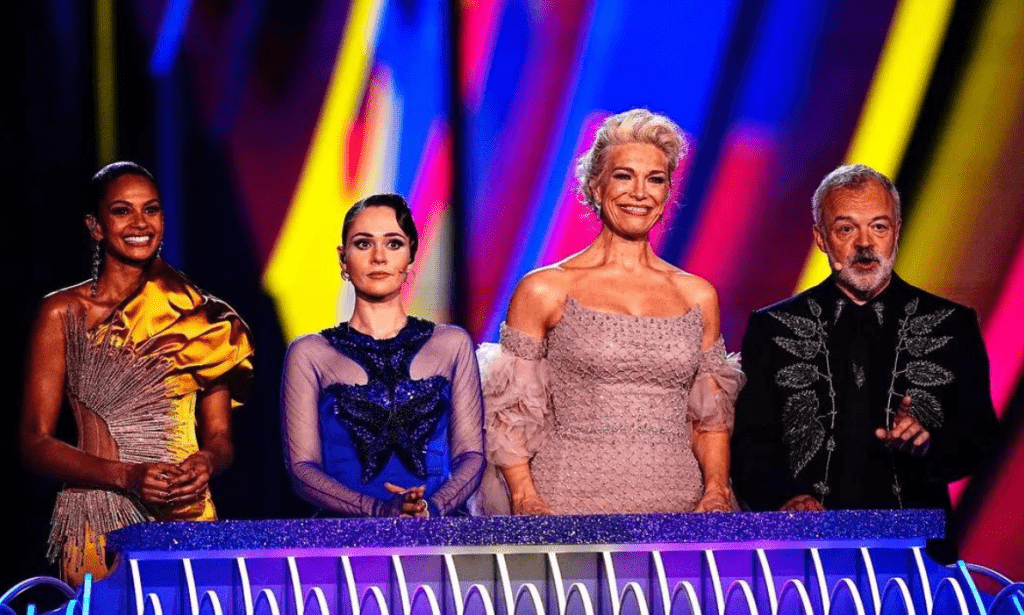

Once everyone has performed, the winner is chosen from phone and online voters and the rankings of juries in each of the Eurovision countries.
Now, What’s With The Controversy?
With the atrocities happening in Palestine, many moments of global entertainment were placed under a scrutinizing spotlight from pro-Palestine supporters. Whether it is the flashy and outlandish Met Gala with 75,000 dollar ticket invites or even the Oscars.
Pro-Palestine protestors believe that the money used to make these events could have been put to better use (aka helping Palestine). Along with the Met Gala and the Oscars, Eurovision was another world of entertainment that was scrutinized by pro-Palestine supporters.
Israel Vs. Protestors
This year, Eurovision has been under attack for having Israel as one of the competing countries. Pro-Palestine supporters wanted Israel to be excluded from the competition. This is especially because of a song performed by Israeli singer Eden Golan titled “October Rain.”
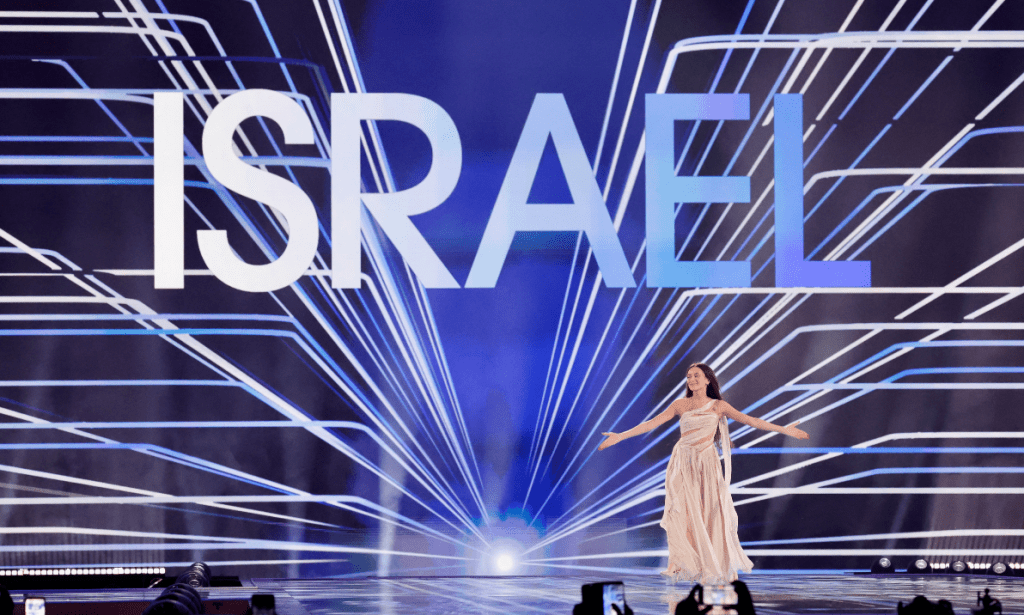

Many believe that the song is in reference to the October 7 attacks, and that is why the song title was changed to “Hurricane.” That song sparked rage among pro-Palestinian supporters who marched through Malmo hours before Golan performed during the Thursday semifinals. Beyond that, there was also another demonstration on Saturday. This was in an effort to stop Israel from competing.
These protests led to a major security operation by Swedish police who were aided by officers from Denmark and Norway.
The One Contestant Who Called For Peace
Not everyone in the competition condoned the atrocities in Palestine, as Swedish pop star Eric Saade, who is of Palestinian origin, wore the keffiyeh on his arm as he performed the opening of the first semi-final of the 68th Eurovision Song Contest in Malmo, Sweden.
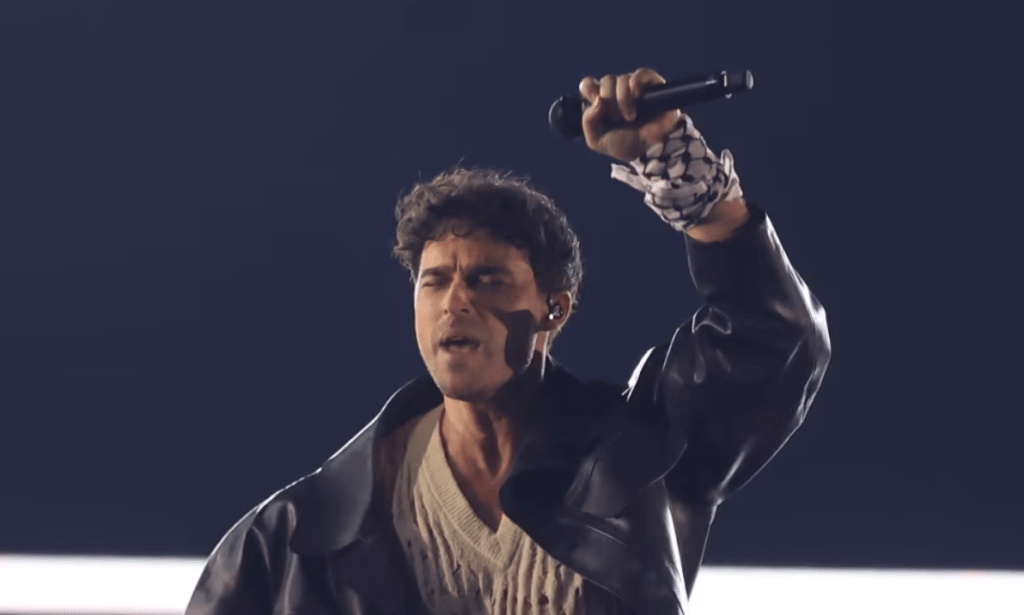

Beyond wearing the keffiyah, he has repeatedly opposed Israel’s involvement in the competition. In response, Saade was reprimanded by Eurovision for wearing the keffiyeh.
A spokesperson for the European Broadcasting Union (EBU), which organizes the event, said: “The Eurovision Song Contest is a live TV show… All performers are made aware of the rules of the Contest, and we regret that Eric Saade chose to compromise the non-political nature of the event.”
What Now?
The backlash that Saade faced, coupled with the fact that Israel continued to compete in the competition, dimmed the light that Pro-Palestine protestors were attempting to shine.
That doesn’t mean they are backing down. Now they are setting their sights on a new boycott, one that involves unfollowing every celebrity who did not speak up or help Palestine. Their fight is still not over.


